Iranian Government Ends Advertisements In Critical Newspaper
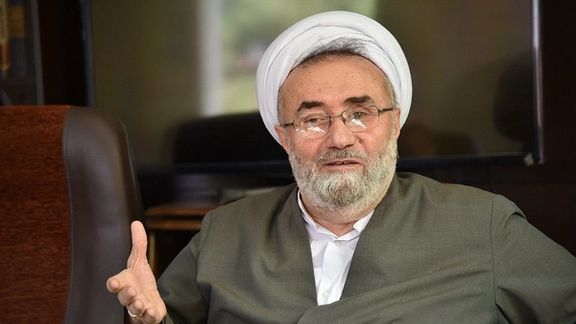
The conservative Iranian newspaper Jomhuri Eslami said on Saturday that the Ministry of Culture has halted government advertisements because it critical stance.

The conservative Iranian newspaper Jomhuri Eslami said on Saturday that the Ministry of Culture has halted government advertisements because it critical stance.
Masih Mohajeri, a cleric and long-time managing editor, disclosed the development emphasizing the administration's intolerance of criticism.
Mohajeri stated, "They [the Raisi administration] cannot tolerate any criticism and believe that the media should unquestioningly serve the government's objectives."
The newspaper has consistently scrutinized President Ebrahim Raisi's economic and foreign policies over the past two years.
In September, Jomhouri-e Eslami joined the chorus condemning the censorship of critical media outlets by ruling hardliners. The paper emphasized the need for a relationship between the government and the media characterized by "mutual respect" to uphold professional standards.
By August, midway through Raisi's presidency, the newspaper asserted that Raisi could no longer attribute his failures to the previous government. It highlighted Raisi's substantial support from Supreme Leader Ali Khamenei and like-minded conservatives dominating other branches of the government. Despite Raisi's initial belief that he could manage the state without a balanced foreign policy, the paper argued that the country's situation and the impact of foreign policy on worsening conditions required a more nuanced approach.
Jomhouri-e Eslami (Islamic Republic) also underscored alarming economic indicators, including an 83-percent increase in printing money, a 95-percent rise in the US dollar exchange rate, and a 114-percent price hike for essential goods. According to the paper, these figures reveal Raisi and his colleagues' lack of understanding of the country's conditions and the consequences of their confrontational foreign policy decisions.

An Iranian, who is a resident of Canada with alleged ties to terrorism, was deported from New York by US authorities to face assault charges in Canada.
The deportation, by the US Immigration and Customs Enforcement (ICE), deemed the individual a "national security priority" due to suspected activities that pose a threat to national security.
The identity of the deported individual remains undisclosed, and crucial details pertaining to alleged terrorism connections and the specific assault charges in Canada have not been made public. This has led to lingering questions about the process through which the individual obtained permanent residency in Canada, especially in light of apparent security concerns.
The person's attempt to enter the US on October 10 via the Rainbow Pedestrian Walkway in Niagara Falls was denied by US border security. But two days later, he was apprehended for illegally entering the US near the Whirlpool Bridge Port of Entry in Niagara Falls.
In November, ICE's Enforcement and Removal Operations (ERO) issued an expedited removal order. The deportation to Canada was executed under the Safe Third Country Agreement, with the individual handed over to Canadian Border Services Agency authorities.
ERO Buffalo Field Office Director Thomas Brophy commented about the deportation, stating, "The return of the Canadian resident to face charges in Canada is a result of the dedicated efforts of officers on both sides of the border working collaboratively to ensure public safety in our communities."
The Safe Third Country Agreement, integral to the US-Canada Smart Border Action Plan since December 2004, mandates that refugee claimants seek protection in the first safe country they enter, unless they qualify for an exception.

The Israeli Defense Forces announced that they attacked targets in Syria early Saturday, responding to fire from the country, where Iran-affiliated forces are active.
The IDF also said it struck Hezbollah “terror infrastructure” in southern Lebanon, including a launch site used by the Iran-backed group following a number of cross-border attacks earlier Friday.
Arab media also reported that unidentified aircraft attacked Iran-linked targets in eastern Syria on Friday.
Local sources reported multiple casualties with different figures, according to some Arab media. Lebanon’s Al Mayadeen said some casualties were Lebanese. Al Arabiya's Arabic television quoted a “security source” to report that eight trucks entering Syria from Iraq had been destroyed.
However, there has been no word from the United States about an attack. Washington announces its air strikes on Iran-affiliated targets, unlike Israel that usually prefers to say nothing. This in turn led to some observers saying that perhaps the reported attack allegedly on weapons depots and trucks carrying Iranian supplies, were conducted by Israel.
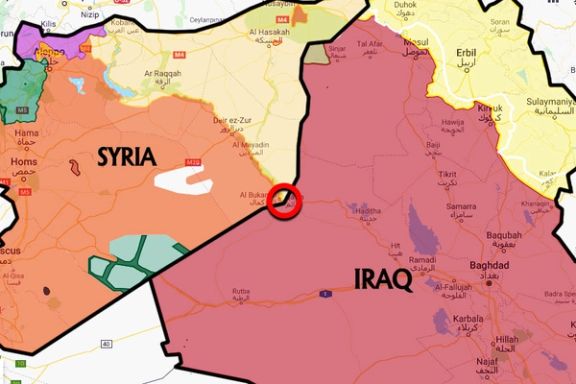
Whether the air strike is confirmed or not, tensions in the region are rising, with more military action taking place on the Israeli-Lebanese border between the Iran-backed Hezbollah and the Israeli army.
On Friday, Israel conducted a series of extensive strikes against Hezbollah targets in Lebanon, attacks which have impacted the Iran-backed group's positioning near the border.
"We continue intensive strikes to hit Hezbollah's deployment close to the northern border," military spokesman Rear Admiral Daniel Hagari said in a televised statement. "It no longer looks as it did on October sixth, nor will it."
Hezbollah has been trading fire with Israel at the border since its Palestinian ally Hamas attacked Israel on October 7, igniting a conflict that has drawn in the heavily armed group and other Iran-aligned factions across the Middle East.
But the violence has largely been contained to areas at the border, shaped by what observers have called unwritten rules of engagement between adversaries that have long threatened each other with catastrophic damage in the event of war.
Israel has said it is not seeking to open a front in the north. Israeli Prime Minister Benjamin Netanyahu has warned that Beirut would be turned "into Gaza" if Hezbollah started an all-out war.
Hagari said the targets of the recent air, tank and artillery strikes included launch pads, military compounds and militant squads.
At the same time, Iran is also apparently not keen to see a full war for its most important proxy force in the region, while Tehran faces a serious economic crisis and has to foot the bill if Hezbollah and its Shiite supporters in Lebanon sustain major losses.
However, Iran continues to use its proxy forces in Syria, Lebanon and Yemen to attack US and international interests, with more than 100 drone and rocket attacks against US forces alone. The Yemeni Houthis have also partially paralyzed the Red Sea with attacks on international shipping.
Many former US officials and Republican lawmakers in recent days have criticized what they say is President Joe Biden's leniency on Iran and have demanded a tougher approach. Some like Senator Lindsey Graham and former national security advisor John Bolton have gone further and called for directly targeting Iran.
“It's clear Tehran does not feel pressured enough to refrain from force,” Bolton wrote in an op-ed for the Telegraph.” I believe that only when Israel, America, Britain, and others show they possess the resolve and capability to impose significant costs on Iran as punishment for such acts, will they persuade the ayatollahs to halt further attacks.”
Iran denies any role in such attacks, maintaining that all operations are planned and executed independently by its affiliated armed groups (or the Resistance, as the Islamic Republic officials call it).
Iran, for its part, has put on a visibly combative tone, ridiculing warnings and ultimatums, accelerating its enrichment program, even threatening to turn Tel Aviv to ruins, ‘“if anyone dares attack Iran.”
Many fear that the hardening of language on all sides might lead to direct confrontation and eventually an all-out war.
Former Israeli PM Naftali Bennett wrote an op-ed in Wall Street Journal on Friday, calling on the US and Israel to “take on Iran directly.”
“Iran is a terror octopus,” Bennett said, “its arms —Hamas, Hezbollah and the Houthis— are sowing chaos and terror across the world. It’s time for the US and its allies to target its head, Tehran, and bring down its regime.”
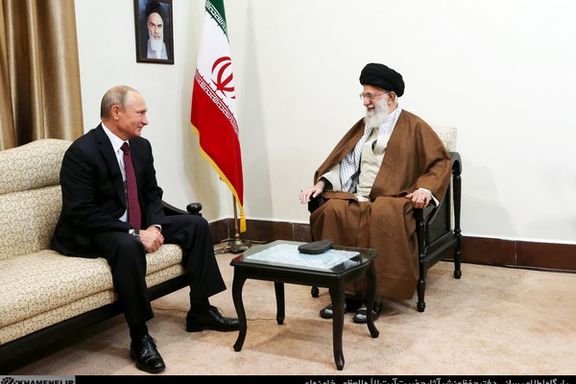
A member of the Iranian parliament's national security commission has asserted that Russia cannot treat Iran as a mere "trump card or playing card."
Ebrahim Azizi underscored that the resilience of Russia's "glass palace" is directly linked to Iran's power and influence in the region.
Tehran and Moscow have been close political and military allies in the Middle East and the wider region for the past decade.
The declaration comes in response to Moscow's public endorsement of Arab claims to three strategically important Iranian islands in the Persian Gulf.
In a joint declaration issued in Morocco, Russia and the Persian Gulf Cooperation Council (GCC) openly expressed their support for the United Arab Emirates, which lays claim to sovereignty over the islands. The ongoing discord surfaces every time during joint summits between the GCC and the Russian Federation, operating within the framework of Russian-Arab Cooperation.
Criticism has emerged from various quarters in Iran, including the media, opposition activists, and the general public, who perceive the regime's response to Russia's alignment with Arab states as inadequate.
Despite historical and geographical evidence validating the islands' connection to Iran, the United Arab Emirates consistently asserts its claim, characterizing the situation as the "continued occupation by the Islamic Republic of Iran."
Originally under British control in 1921, the islands took on new significance when, on November 30, 1971, just two days before the UAE officially federated, the Iranian navy secured control. Presently, Iranian forces maintain control of the islands, with only Abu Musa hosting a population of fewer than two thousand civilians.
Russia's alignment with Arab states has ignited discussions within Iran about the potential exploitation of Moscow's ties with Tehran in recent years, raising concerns about the geopolitical implications of the alignment.
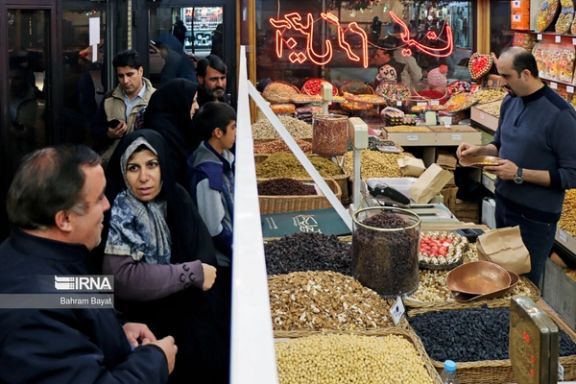
With Iran's inflation rate soaring, a new report suggests that the price hikes in most provinces are higher than the average figure announced by the authorities.
Fararu website in Tehran reported on Friday that the point-to-point inflation rate in December once again surpassed the 40% mark after five months. The index indicates that Iranian households spent approximately 40% more in the past month compared to the corresponding period of the previous year to meet their needs or purchase a range of goods and services.
According to the Iran Statistical Center's definition, point-to-point inflation rate represents the percentage change in the average of the price indices in comparison to the year before, providing a more tangible perspective on understanding price hikes. The reported point-to-point rate for the past month was 44.4% while the government had predicted an annual rate of 25 percent for the current Iranian year (started March 21).
There are no independent figures on the economy and no non-governmental entities to verify figures published by the authorities. Some politicians and media say that the real rate of inflation is higher that what the government announces.
The highest inflation rate this month was reported in hotel and restaurant services at 56.5 percent, exceeding about 16 percent over the average annual rate of about 40 percent promulgated by the authorities. Inflation for clothing and shoes was at 47.2%, cigarettes at 45.8%, recreation and culture at 44.1%, education at 42% and foods at 41.3%.
Notably, the prices of red and white meat have surged by about 95% in the last 12 months, also surpassing the overall inflation rate. Lawmaker Asghar Salimi cautioned earlier this month that meat is now excluded from the typical Iranian household's food basket, emphasizing the potential consequences for the next generation.
Iranian authorities use different rates for different political agendas. For example, when they aim to defend low salary increases for government sector workers, they use lower inflation figures, but when they want to justify the 34% rise in tariffs – announced Friday – they say the increase is less than the 40% general inflation.
Additionally, the government also focuses on the average for the entire country to decrease the figures, making the best uses of the poor provinces where goods and services are cheaper. According to the latest data, the point-to-point inflation rate for the Yazd province was more than 50% this month, the highest among the 31 provinces, suggesting that Yazd residents are more affected by inflation than those in any other province.
The Islamic Republic has been struggling with high inflation since 2019, but the raging inflation since May 2022 has been worse from previous years. Last May, the government eliminated an annual food import subsidy of $10-14 billion, which immediately led to steep price increases. This was followed by a fall in the value of the national currency, making imports more expensive for the population. Iran’s ruler Ali Khamenei has dubbed the current year as “the year of controlling inflation”, a promise also repeated by President Ebrahim Raisi, but reminiscent of similar slogans in previous years.
Economist Ali Sa’dvandi wrote on social media that “The year of controlling inflation concluded with a relative failure in achieving the goal.”
Addressing the Raisi administration in a sarcastic tone, he said, “You controlled the foreign currency market, decreased housing prices, slowed down the rise in the money supply and balanced out the banks’ shortfall in capital... so how did you fail to control inflation?”
When the central bank resorts to printing money without sufficient economic growth or foreign currency revenues, the money supply increases fast, which in turn leads to more currency devaluation and inflation. The biggest immediate reason for printing money is government borrowing from the Central Bank of Iran to bridge its budget deficit estimated to be at 50 percent.
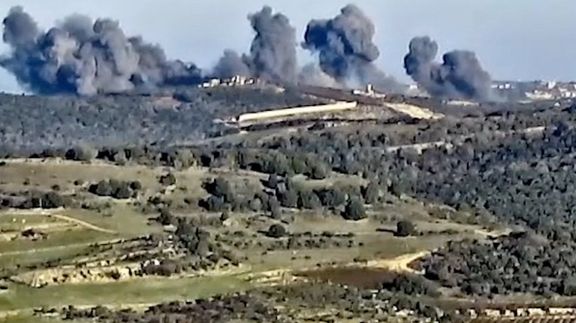
Israel has completed a series of extensive strikes against Hezbollah targets in Lebanon, attacks which have impacted the Iran-backed group's positioning near the border.
Israeli military spokesperson Rear Admiral Daniel Hagari said in a televised statement on Friday, "We continue intensive strikes to hit Hezbollah's deployment close to the northern border."
"It no longer looks as it did on October sixth, nor will it," he said about the situation on Israel's northern border with Lebanon, where Hezbollah is entrenched.
Hagari said the targets of the recent synchronized air, tank and artillery strikes included launch pads, military compounds and militant squads.
Hezbollah has been trading fire with Israel at the border since its Palestinian ally Hamas attacked Israel on October 7, igniting a conflict that has drawn in the heavily armed group and other Iran-aligned factions across the Middle East.
Iran supports Hamas but says it did not play any role in the Islamist militants' terror attack that triggered the current crisis. Tehran also denies involvement in the recent attacks on vessels in the Red Sea by Houthis, another group backed by Iran.
But the violence has largely been contained to areas at the border, shaped by what observers have called unwritten rules of engagement between adversaries that have long threatened each other with catastrophic damage in the event of war.
Israel has said it is not seeking to open a front in the north. Israeli Prime Minister Benjamin Netanyahu has warned that Beirut would be turned "into Gaza" if Hezbollah started an all-out war.
(With reporting by Reuters)